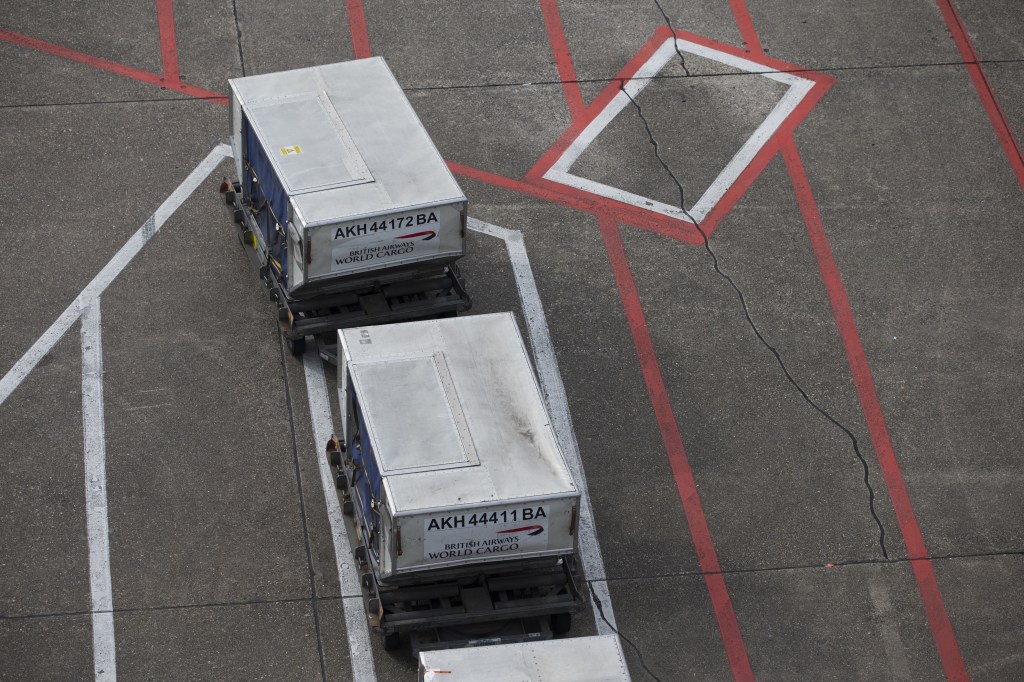News broke earlier this week that the U.S. would ban laptops and tablets (and any other electronic device larger than a smartphone) from all U.S.-bound flights that take off from 10 airports in the Middle East and Northern Africa. The U.K. then followed suit and instituted its own ban, which targets a slightly different list of airports, which — at least on the face of it — doesn’t make a lot of sense.
Now that the dust is starting to settle and that the ban is about to go into effect, two major storylines are emerging. One focuses on terrorism while the other is about the economics of the airline business.
Contrary to what airlines typically warn against, passengers will now have to check their laptops; not only is that an annoyance, but it also increases the risk of a lithium-ion battery catching fire in the cargo hold. Not to mention opening up the door to theft. Now that’s going to be common practice on those roughly 50 flights a day that head to the U.S. from the affected airports.
Government officials in both countries won’t say much about why this ban is happening now, except for citing “evaluated intelligence” that shows that terrorists are looking at using consumer devices to smuggle bombs onto planes and that these specific airports were chosen because of their lax security measures (though they would surely disagree).
What complicates the picture is that the U.S. and U.K. are targeting flights from different countries and airports. The U.K. ban focuses on Turkey, Lebanon, Jordan, Egypt, Tunisia and Saudi Arabia. The U.S. ban centers around the international airports in Turkey, Jordan, Egypt, Saudi Arabia, Morocco, Qatar and the United Arab Emirates. As you can see, there is some overlap here, but there are also plenty of direct flights to the U.K. from airports like Dubai International.
No U.S. airline was affected by the U.S. ban because no U.S. airline flies directly to any of the affected airports. The cynical explanation here is that this isn’t a coincidence but is instead meant to help airlines like United, Delta and American — all of which are locked into heavy competition with Middle Eastern carriers like Emirates, Ethiad and Qatar (often called the ME3). The major U.S. airlines argue that the ME3 are competing unfairly because their home countries have subsidized their operations. As any frequent business traveler will tell you, though, airlines like Emirates also tend to offer a far superior product and the geographic location of their hubs in the Middle East also gives them an advantage.
I’m pretty sure nobody at United, Delta or American (or any of the ME3’s other direct competitors with flights to the U.S.) is shedding a tear over this ban.
It’s hard not to look at the U.S. version of the ban and not think that there is some economic protectionism going on here, especially when you consider that the U.K. version of the ban excludes the ME3’s main hub airports.
Of course, all of these bans have a simple, massive loophole. All you need to do is choose a connecting flight to the U.S. or U.K. on the likes of Lufthansa, KLM or Air France that doesn’t stop at any of the airports named in these orders and you can simply walk on with all of your electronics safely stored in your bag. And you could do that from airports that surely have far more lax security procedures than Dubai International.
Given that the U.K. has joined into the ban, though, there is likely some intelligence that this is a threat. The rumor now is a recent raid on Al Qaeda in Yemen prompted this ban and U.S. officials believe bombs hidden in consumer electronics brought down a Russian jet in 2015 and ripped a hole in the cabin of another plane last year (that plane managed to make an emergency landing).
Would it be better if those bombs went off in the cargo hold? The assumption here seems to be that the bombs need to be triggered manually — and maybe that the x-ray machines that scan your suitcase before it’s loaded are more likely to catch them than the regular security checks for carry-ons. Neither the U.S. nor U.K. will provide any details about the perceived threat, so we’re stabbing in the dark here.
If there is a real threat, though, why don’t the U.K. and U.S. intelligence agencies agree on which airports to focus on? The cynical explanation here is that the U.S. is using this real threat (and I assume there is one) as an excuse to also hurt the competitors of its largest airlines.
Either way, what’s certain is that flying on the affected airlines is now more of a hassle for business travelers, especially those who can charge by the hour and want to get work done on their long-haul flights. And it’s those business travelers who buy a business class ticket who make the airlines most of their money.































Comment